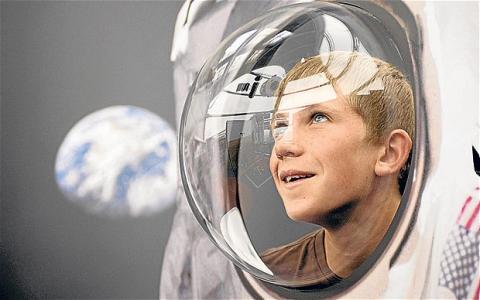£9 million 'informal learning' initiative launched
The initiative aims to learn more about, evaluate and maximise the impact of informal learning experiences; improving understanding of how informal environments may help to widen access to science for young people from all backgrounds. Dennis Schatz, program director in NSF's Division Research on Learning said: “Projects such as science museum exhibits, after-school programmes, citizen science projects, and science cafés are popular and get people involved in science outside of the classroom.
"This collaboration will allow us to bring together the resources of both the UK and US in understanding better the learning achieved through these kinds of projects.” Funding for the initiative will take place in two phases, beginning with planning grants in 2014 to enable initial collaborations and ideas development. This will expand to longer term partnership grants in 2015, for research programmes of up to five years.
Writing in The Telegraph today, Clare Matterson, Director of Medical Humanities and Engagement at the Wellcome Trust said: “US studies tell us that, during the school year, students from low socioeconomic backgrounds make similar progress to those from more affluent ones, but they fall behind during the summer holidays. “If such ‘out of school’ experiences, such as trips to museums, theatres and galleries are important, we must make sure that they are available for young people of all backgrounds.”
Last month, Sir Michael Tomlinson, former chief inspector for Ofsted called for STEM development in early years at primary school, with a focus being placed on bringing these subjects alive in their every day contexts. He said that this would help to challenge the current belief among many schoolchildren that these subjects were difficult and only led down a specific career path such as “being a scientist”.
Adrian Alsop, Director for Research at the ESRC said that experiences outside of the school classroom, in more informal settings, can be “crucial to unlocking people’s interests.” “We know from previous social science research that some groups of young people regard science as ‘not for me’ and there is often a perceived disconnect between the science learned in the classroom and how it can be applied with positive benefits in the real world.”
It is hoped that by investigating this connection further, more young people will engage with science, both at a young age and beyond GCSE.
Josie Gurney-Read

